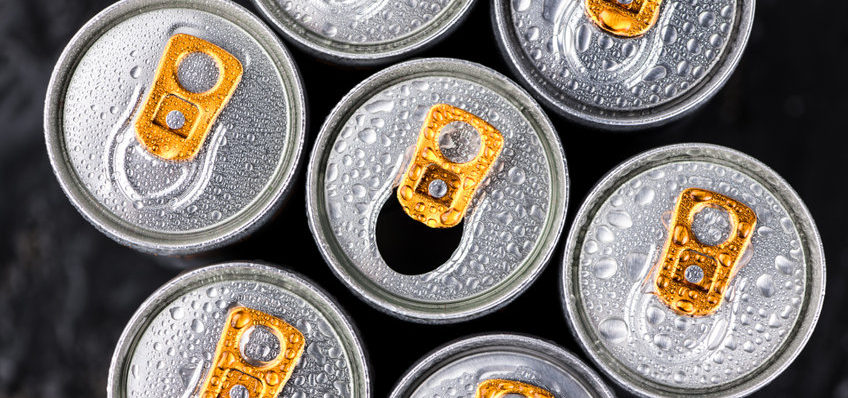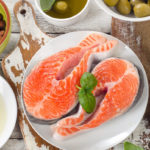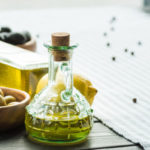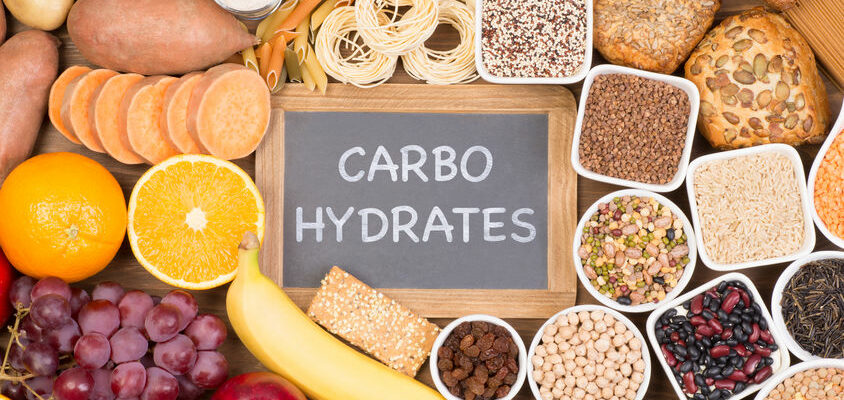
Energy drinks are artificially and naturally flavored beverages that provide both physical and mental stimulation. Commonly considered a supplement, these drinks are fortified with B vitamins, herbs, amino acid derivatives, sugar, and caffeine. Although these drinks as we know them today first took off in Japan in the 1980s¹, it wasn’t until the 1990s that these drinks would become popular in the United States. Today, you can find them in every supermarket and gas station with the range of flavors and brands that offer them continuing to grow every day.
Some popular brands include:
- Red Bull
- Monster
- Rockstar
- Bang
- 5-hour Energy
Alongside their promise of boosting energy levels, many of these drinks contain high amounts of sugar. Some even contain more than 30 grams of sugar². However, much of the concern surrounding these beverages is not only about what is in these drinks, but also who they are marketed to.
Energy Drinks and Young People
These drinks are heavily marketed to children through children’s websites, computer games, television, supermarkets, and sporting events³. Studies have shown that children are easily influenced by this marketing, peer pressure, and lack of knowledge about the health risks associated with these drinks⁴. The Centers for Disease Control and Prevention (CDC) has previously highlighted the potential dangers of energy drinks, noting that adolescents and teenagers experienced heightened effects due to their body size. Moreover, a recent study from the British Medical Journal also examined how long-term excessive consumption of these beverages caused a 21-year-old man’s cardiomyopathy⁵.
Excessive Caffeine Levels
Caffeine can help increase alertness and energy levels, with its recommended daily maximum being 400 mg. Consuming more than the recommended amount can cause side effects⁶ such as:
- Headache
- Insomnia
- Irritability
- Nervousness
- Frequent urination
- Fast heartbeat
- Muscle tremors
While these beverages can range between 70 mg and 240 mg of caffeine per serving, the long-term effects of young people consuming large quantities of caffeine have been examined. A 2016 study found that participants who consumed energy drinks three days in a row experienced heightened cardiac QT intervals⁷, which, if prolonged, can result in cardiac arrest. A more recent study⁸ discovered that these beverages can affect heart rate as well as increase systolic blood pressure (SBP).
The Dangers of Mixing with Alcohol
When examining older consumers, the data shows that these beverages are not always consumed alone. One-quarter of college students consume these drinks with alcohol⁹. Combining these beverages with alcohol makes them even more dangerous, and the CDC notes that it makes individuals between the ages of 15 and 23 four times¹⁰ more likely to binge drink. Mixing this beverage with alcohol can lead to more dangerous behavior, such as drinking and driving and alcohol-sustained injuries. Furthermore, the long-term effects of excessive alcohol consumption include liver cirrhosis, heart problems, limited brain functioning, weakened immune system, and cancer.
Healthier Alternatives
Feeling as though you need an energy boost is common. Nonetheless, energy drinks can be harmful when consumed in excess and over long periods of time, especially for younger individuals like children and adolescents. If you are looking to avoid consuming these drinks, know that there are alternatives¹¹. The first is maintaining a diet with plenty of protein, carbohydrates, and water, as studies show they can help keep your body running. Additionally, vitamin supplements are another option for individuals looking to increase their energy throughout the day. Last but not least, maintaining an active lifestyle and staying active throughout the day can help you feel more energized and alert without consuming these drinks.
Check us out on Youtube!
References
- “Energy Drinks: Beverage.” Eat Dat, Eat Dat, 19 June 2020, www.eatdat.com/beverage/energy-drinks/.
- Heneman, Karrie, and Sheri Zindberg-Cherr. “Energy Drinks.” Anrcatalog.ucanr.edu, University of California, 2007, anrcatalog.ucanr.edu/pdf/8265.pdf.
- “Energy Drinks.” The Nutrition Source, The Nutrition Source, 30 July 2020, www.hsph.harvard.edu/nutritionsource/energy-drinks/.
- Pound, Catherine M, and Becky Blair. “Energy and Sports Drinks in Children and Adolescents.” OUP Academic, Oxford University Press, 6 Oct. 2017, academic.oup.com/pch/article/22/7/406/4356894?login=true.
- Fisk, Gracie, et al. “Energy Drink-Induced Cardiomyopathy.” BMJ Case Reports, BMJ Specialist Journals, 1 Mar. 2021, casereports.bmj.com/content/14/4/e239370.
- “Caffeine: How Much Is Too Much?” Mayo Clinic, Mayo Foundation for Medical Education and Research, 6 Mar. 2020, www.mayoclinic.org/healthy-lifestyle/nutrition-and-healthy-eating/in-depth/caffeine/art-20045678.
- Shah, Sachin A., et al. “Impact of High Volume Energy Drink Consumption on Electrocardiographic and Blood Pressure Parameters: A Randomized Trial.” Journal of the American Heart Association, Journal of the American Heart Association, 29 May 2019, www.ahajournals.org/doi/full/10.1161/JAHA.118.011318.
- Shah, Sachin A, et al. “Abstract P324: Impact of Energy Drinks on Electrocardiographic and Blood Pressure Parameters: A Meta-Analysis of Clinical Studies.” Circulation, Circulation, 23 Mar. 2018, www.ahajournals.org/doi/10.1161/circ.127.suppl_12.AP324.
- “Energy Drinks.” National Center for Complementary and Integrative Health, U.S. Department of Health and Human Services, www.nccih.nih.gov/health/energy-drinks.
- “Dangers of Mixing Alcohol with Caffeine.” Centers for Disease Control and Prevention, Centers for Disease Control and Prevention, 4 Feb. 2020, www.cdc.gov/alcohol/fact-sheets/caffeine-and-alcohol.htm.
- Barta, Kristen. “Is There Such a Thing as Healthy Energy Drinks?” Healthline, Healthline Media, 9 July 2017, www.healthline.com/health/energy-drinks-healthy-alternatives#alternatives.
Ashuni Pérez is a writer in the culinary, as well as health and wellness industries. With a background in teaching and digital media, she loves to learn and help others discover more about their food, where it comes from, and how best to prepare it. A foodie through and through, she is always searching for new recipes and the freshest ingredients.











Leave A Comment